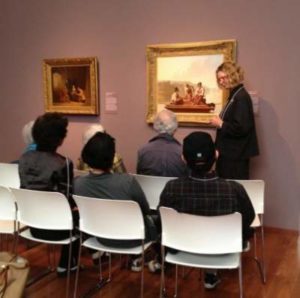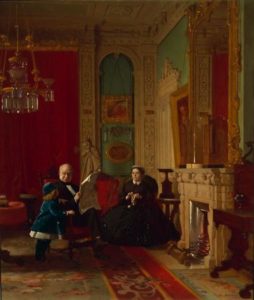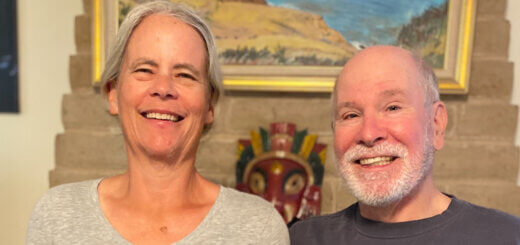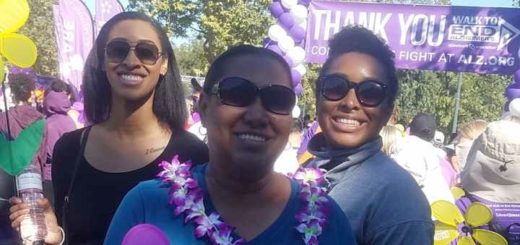Bay Area museums offer tours for people living with Alzheimer’s
The Alzheimer’s Association has partnered with five Bay Area museums to offer specialized museum tours. This innovative and enriching program connects people living with early-stage dementia and their care partners with some of Northern California’s most beautiful art.
During pre-arranged tours, specially trained museum docents highlight themes, artists and exhibitions in small-group discussions at the galleries. In their talks, the docents are less focused on the particulars of individual art pieces. Instead, they are more attuned to the needs of their visitors and to enhancing their appreciation of art.
The five museums currently participating are the Contemporary Jewish Museum, de Young Museum and Legion of Honor in San Francisco and the Cantor Arts Center and Anderson Collection at Stanford. The Alzheimer’s Association and the San Francisco museums also sponsor a spin-off from the original tour model that is tailored for Cantonese speaking individuals who are living with mid-stage dementia.
A way to engage
“To me, the real value is that it gives people a place to engage that is supportive and fun,” said Vanessa Souza, Early Stage Program Coordinator for the Alzheimer’s Association. “It’s something that would be of interest to them regardless of whether they had dementia.”

Souza said that many first-time participants remark that they had not been to a museum in a long time. They tell her that they “were very happy that they were able to get out and be able to spend time with their partners. A lot of people use it as a chance to spend a day in San Francisco.”
An opportunity for discussions
Carly Rivers, a Berkeley resident living with Alzheimer’s, has participated in five or six of the programs. “It is a wonderful experience,” she said. “It helps you to look into the art more deeply, to see more and to respond more, by talking about what we see.”
In addition, Carly says the visits and the discussions are beneficial to the relationships that individuals with cognitive impairments share with their care partners. “It opens up another [avenue of conversation] between us that we can look at and refer to later,” she shared. “We have people that are at many different levels of care, and that’s very helpful to some of us.”
Highlights from a tour
During a recent program at the de Young, docent Victoria Kirby launched the day’s art theme of abundance. She started in front of the Mantelpiece for Thurlow Lodge, Menlo Park, CA. This towering wood and marble fireplace mantelpiece, designed by New York brothers Gustave and Christian Herter, dates to the early 1870s.

“So, what do you think of this?” docent Victoria Kirby asked her audience of about a dozen people settled into chairs facing the massive piece.
“It’s nice! Is it made out of wood?” a young woman asked. “Real wood?”
“Yes,” Victoria responded. “French oak.”
Victoria then asked another question: “Would this fit in any of your houses?”
Some giggled. Others shook their heads with an exaggerated “No!”
Soon after, Victoria’s docent partner, Carol Fox, took over and she was on to the next piece of art. The Brown Family is a large oil painting of an elegantly dressed man, woman and young child by Eastman Johnson from 1869.

“What do you think these people have?” Carol asked, reminding the group that the day’s theme was “abundance.”
“Too much!” a member of the group yelled back, as many others laughed.
“I think it’s opulent,” one woman added.
” It is opulent, Carol responded.
Fun for the docents and the participants
Carol and Victoria have both been conducting the tours since 2011. They agree with Vanessa that docents often get as much out of the tours as the participants.
“To them, it’s a specialized kind of tour,” Vanessa said of the docents. “It’s more detailed. They get to spend more time with the people, and also can experience all of the people [in groups] together.”
For Carly, participating in the group tour is one of the added benefits. “Different people have different responses and feelings in relation to what we are looking at,” she shared. “When we talk with each other, we learn from each other, too. It’s just fun to find out how different we can all be and how we can help each other.”
For more information on the tours or other programs for those living with a cognitive impairment, contact Vanessa Souza at vsouza@alz.org or 800.272.3900.
Learn more:

















